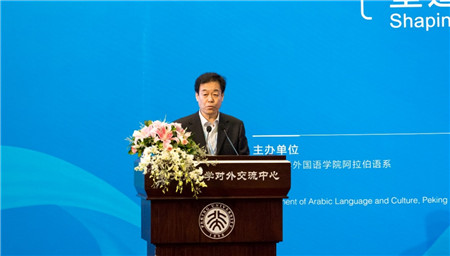
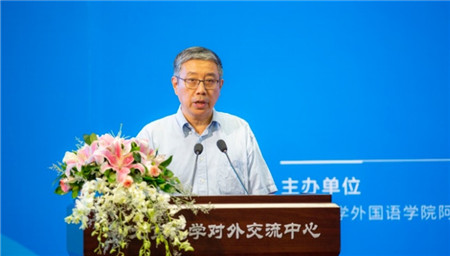
Vice president Tian Gang delivering welcome remarks
Tian Gang, who spoke first, stressed the pioneering role of the China-Middle East Youth Dialogue and expressed his hope for the deeper inter-cultural communication among youths in China and the Middle East. Abdullah Saleh Al Saadi praised the positive impacts of the Belt and Road Initiative on the Middle East countries and illustrated his further expectation of both the initiative and the forum. Wu Sike spoke highly of the power of the youths and traced the friendly ties between China and the Middle East, looking forward to the further cooperation in relative countries. Flynt Leverett, discussed the efforts U.S. had made to achieve the balance of the regional situation in the Middle East, meanwhile expressed his opinions on U.S. President Donald Trump’s Middle East strategies and touched on China’s increasing engagement in regional issues. The final speaker of the Opening Ceremony was Lisa Blaydes, she introduced the status of Islamic studies programs in the United States and gave her suggestions about the importance of using big data, G graph technology as well as the text for further research in this field.
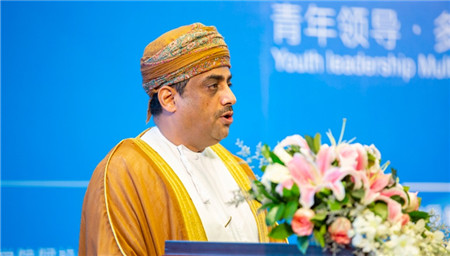
Ambassador Abdullah Saleh Al Saadi making a speech
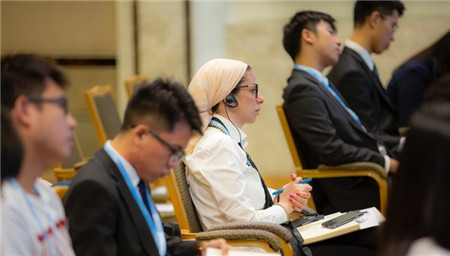
Delegates from China and the Middle East
The Chinese delegate Shi Yuran, graduate from the Department of Arabic Language and Culture, Peking University, said that the forum provides a great opportunity to communicate with the famous scholars and excellent peers from all around the world, especially the Middle East. The delegate both from China and the Middle East will comprehend each other’s culture and current situation in a deeper and wider sense through the collision of ideas. Nasser Alshaqsi, delegate from Oman, said that the trend of economy globalization is growing in China, and the “one belt one road” initiative is arousing unparalleled attention and support in the Middle East. Youths from different countries should seek for more opportunities to interact with each other to make joint efforts on facing the rising challenges in the new era. China and the Middle Eastern countries are all developing countries, so if countries in the Middle East want to accomplish the economic transformation, they have to learn from China’s pattern of development.
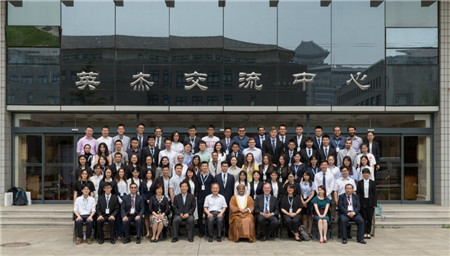
Group photo outside the Yingjie Exchange Center
The China-Middle East Youth Dialogue aims at broadening the horizon of Chinese youth, helping them have a deeper understanding of the history and the status quo of the vast stretch of the region, and developing their comprehension and judgement ability of regional issues. Based on academic discussions, the Dialogue gathers elites from China and the Middle East at Peking University, one of the highest academic institutions in China and creates equal and diverse communication. At the same time, it helps youths from the Middle East appreciate the Chinese culture and analyze China’s economic and social development in the new era.
Written by: Zhao Xinyuan, Cao Yuting
Edited by: Zhang Jiang
Photos by: Wang Xiaopeng, Li Jiahua, Jiang Runze
Source: Peking Univeristy Clinical Research Institute